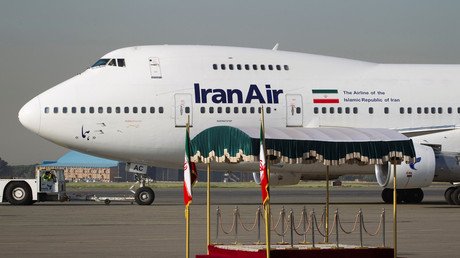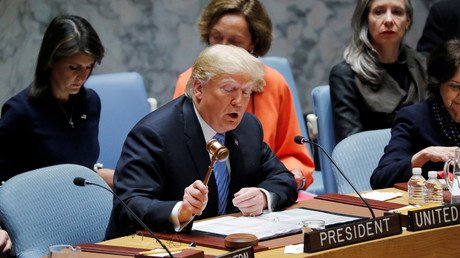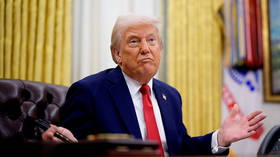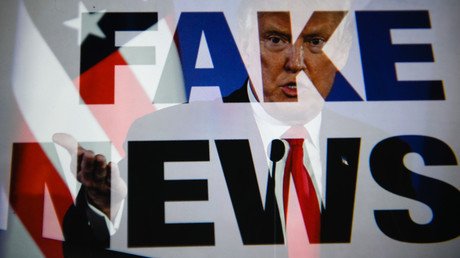Iran ICJ ruling sets worrisome international precedent for the US
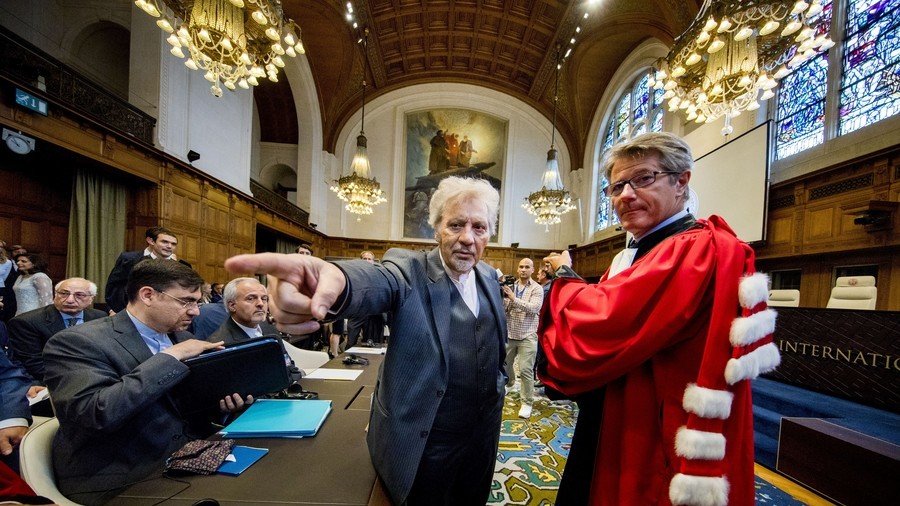
Iran has just scored a moral and political victory over the US in the international arena, but what this victory will entail in practice remains to be seen.
“Iran’s own track record of violating international law is among the worst of the world,” Secretary of State Mike Pompeo recently said at the United Against Nuclear Iran Summit 2018 last week. “It has no regard for international law, borders or lives. It is therefore incumbent on every country to join our efforts to change the regime’s lawless behaviour.”
The irony of Pompeo’s speech was so thick that barely a few days after uttering those words, the International Court of Justice (ICJ) delivered a stern preliminary ruling to lift sanctions on Iran which are linked to humanitarian goods and civil aviation. In its statement, the ICJ made it quite clear that its power to indicate provisional measures will be exercised “only if there is urgency, in the sense that there is a real and imminent risk that irreparable prejudice will be caused to the rights at issue.”
With this in mind, the ICJ stated in plain English that the “Court is of the view that a prejudice can be considered as irreparable when the persons concerned are exposed to danger to health and life.”
“In its opinion,” the statement continued, “the measures adopted by the United States have the potential to endanger civil aviation safety in Iran and the lives of its users to the extent that they prevent Iranian airlines from acquiring spare parts and other necessary equipment, as well as from accessing associated services (including warranty, maintenance, repair services and safety-related inspections) necessary for civil aircraft."
“The Court further considers that restrictions on the importation and purchase of goods required for humanitarian needs, such as foodstuffs and medicines, including life-saving medicines, treatment for chronic disease or preventive care, and medical equipment, may have a serious detrimental impact on the health and lives of individuals on the territory of Iran.”
Before examining the legal implications of the decision, it is worth paying attention to the humanitarian aspect of the equation brought before the Court. Due to decades of sanctions, Iran has struggled to purchase parts for its commercial aircraft, meaning that Iran has to make do with old and outdated airplanes which have frequently entailed a number of deadly accidents. Imported drugs are in short supply, and the decline in Iran’s rial has raised costs of medicines by close to 50 percent.
The matter was brought to the Court’s attention when on July 16, 2018, the Islamic Republic of Iran instituted proceedings against the US for its alleged breaches of the Treaty of Amity, Economic Relations and Consular Rights signed in Tehran on August 15, 1955. The treaty itself grants the ICJ jurisdiction over its disputes under clause 2 of article XXI.
Unsurprisingly, the US immediately announced it would be pulling out of the Treaty of Amity with Iran. Again, it was our good friend Mike Pompeo who delivered the news of the decision to terminate the Treaty of Amity, stating that it was “a decision that is, frankly, 39 years overdue.”
Some of you may be wondering, if in fact the treaty was entered into on August 15, 1955 and did not come into force until June 16, 1957, then how come the decision is 39 years overdue (and not, say, 63 years overdue)? According to Pompeo, treaties were valid with Iran after the CIA helped to install a puppet government that would do Washington’s bidding, but were no longer valid after the Iranian Revolution of 1979 (even though the US brought proceedings against Iran under the treaty during the infamous hostage situation).
Despite Pompeo’s clear desire to erode the only international legal institutions that could possibly rule against American exceptionalism, the national security adviser has taken this one step further. John Bolton, who openly rejects the legitimacy of unelected “globalist” elites, particularly the United Nations and the International Criminal Court (ICC) – which the US pays absolute zero regard to anyway – has now said that the US would“commence a review of all international agreements that may still expose the United States to purported binding jurisdiction dispute resolution in the International Court of Justice.” Just last month, the Trump administration (through Bolton, yet again) refused to cooperate with the ICC after it was announced that the ICC may begin investigating potential US war crimes in Afghanistan.
Without wasting any time, Bolton announced that the US would withdraw from the “optional protocol” under the 1961 Vienna Convention on Diplomatic Relations, an international treaty setting out diplomatic relations.
“This is in connection with a case brought from the so-called State of Palestine naming the United States as a defendant, challenging our move of our embassy from Tel Aviv to Jerusalem,” Bolton admitted.
Bolton also said he would like to “stress” that the US remains a party to the underlying Vienna Convention and expects all “other parties to abide by their international obligations under the convention.”
“This really has less to do with Iran and the Palestinians than with the continued consistent policy of the United States to reject the jurisdiction of the International Court of Justice, which we think is politicized and ineffective,” Bolton reportedly concluded.
Honestly, you can say what you like about the Iranian government, but ripping up treaties left, right, and center while expecting other states to abide by treaties you have zero respect for seems to me to fit the very definition of a rogue state.
The ICJ is the UN’s principal judicial arm and its decisions are legally binding. However, even though the Court said it was not satisfied that American assurances are adequate to address fully the humanitarian and safety concerns raised by Iran, there is no enforcement mechanism through which the Court can require the US to abide by its ruling. As such, the US has repeatedly ignored its decisions in the past, anyway. The US is also hellbent on maintaining the argument that a decision made in lieu of its national security would overshadow the terms of a treaty it signed with Iran in 1955. Therefore, in Washington’s eyes, the ICJ has no jurisdiction, which may in fact have some merit given a landmark US Supreme Court case that ruled the Constitution supersedes international treaties ratified by the US Senate.
Even if there was a mechanism in place to ensure compliance of its rulings, it is more than apparent that the US is already setting its sights on removing itself from any form of internationally judicial oversight by pulling out of deals which could form the basis of a claim to the ICJ. This fact speaks volumes because the US is still completely free to challenge the preliminary ruling, yet it seems more intent in simply withdrawing itself from any form of international diplomacy available.
That being said, this was not an outright victory for the Iranian government. The ICJ was not prepared to accept Iran’s argument in its entirety, and limited its decision to sanctions affecting the humanitarian and civil aviation situation. Despite this, the US is still offended by the idea that it could possibly be doing anything wrong at any time, calling Iran’s claim meritless.
It would be the equivalent of a sports team losing a pre-tournament game in front of the entire world, only to respond by saying the other team lacked merit before withdrawing itself from the tournament completely.
Maybe, just maybe, this has nothing to do with the US ever being forced to do anything it doesn’t want to do; but has more to do with the fact that the US cannot bear to admit that it has ever done anything wrong. At the end of the day, the ICJ decision may have close to zero effect on the official anti-Iranian foreign policy of the US, but the decision may affect the way Europe decides to handle its relations with Tehran. Europe already appears to be hesitant to follow the Trump administration blindly down the warpath, and the humanitarian concerns raised by the ICJ will only further complicate the issue for Europe, which prides itself on its commitment to humanitarianism.
Whether or not the US will admit its wrongs, history will remember it the way it is. The ICJ may not possess any teeth to force the US to comply with its ruling, but the rest of us will never forget the first international case-law precedent on “economic warfare” which acknowledged who it was that led us down this path of death and destruction.
Think your friends would be interested? Share this story!
The statements, views and opinions expressed in this column are solely those of the author and do not necessarily represent those of RT.

